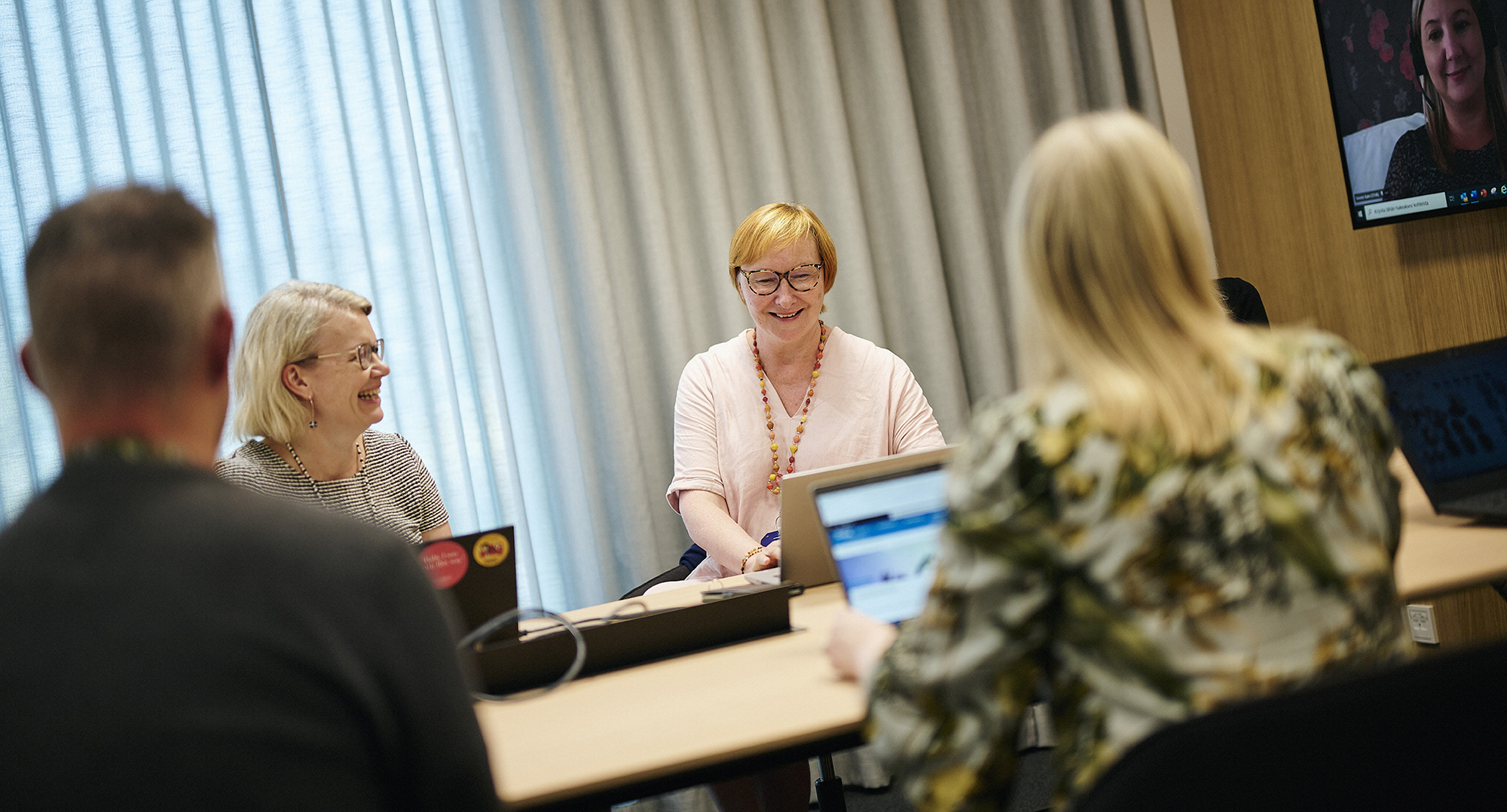Happy officials express their views
The Radiation and Nuclear Safety Authority has flexible working practices. You can work remotely, in the office and from different locations. Flexibility in varying work and life situations is important to our employees. Remote work and related instruction is one of the themes that STUK’s personnel cooperation group (HYRY) has had a strong influence on.

HYRY is an active personnel cooperation group, which consists of contact persons, employee representatives and health and safety representatives selected by the departments’ employees. HYRY holds meetings approximately six times a year. The cooperation group deals with the personnel’s views on cooperation issues and, if necessary, also raises issues for discussion with STUK’s Management Board. This happens regularly and smoothly, as the employee representative selected by HYRY is a member of STUK’s Management Board. This practice has a long tradition. At present, the employee represententative in the Management Board is Sampsa Kaijaluoto, who supervises nuclear medicine.
"As a employee representative, I’m a sort of an oddball in the Management Bord, but I’ve found my place there as a mediator of views between the management and personnel. I think that it is important that the realities of the management and personnel do not diverge," says Sampsa about her role in the Management Board. "I implement the cooperation by bringing HYRY’s current issues to the attention of the Management Board during each meeting. They often lead to discussions with the directors. Similarly, at every HYRY meeting, I share the news from the members of the Management Board."
In addition to the remote working practices, Sampsa thinks that HYRY has had a strong impact on, among other things, increasing the transparency of recruitment and the Equality and Non-discrimination Plan.
Is there anything special that HYRY, and Sampsa as HYRY's representative, would like to pay attention to during the times we are living in?
"I have often thought about the effects of the current hybrid work on STUK’s sense of community and how we do our work. In my opinion, working in the office and remotely should be organized so that there is room for meeting each other and sharing profound thoughts every day, regardless of where you are. I believe that the key to achieving this can be AI tools and abandoning tasks that have no impact. By doing this, we could achieve the status of a happy official that is also mentioned in STUK’s vision," Sampsa believes.
Did you know that...
At the end of 2023, the Radiation and Nuclear Safety Authority employed 301 people. The number of STUK employees has been decreasing since 2019. Reasons include: retirement and termination of fixed-term research projects.
Our key figures for 2023
- 57.7% men and 42.3% women
- Average age 48 years
- Average working time at STUK 14.6 years
- In 2023, STUK also employed eight higher education students/trainees and seven thesis workers
- Personnel training consisted of 6.3 training days per person-year. This includes participation in preparedness training and exercises, which took 1.2 working days. Other competence development (e.g. on-the-job learning, being mentored, short information sessions and obtaining information) was recorded as 4.6 days per person-year in 2023.
- Of STUK’s permanent employees, 88.7% had a university degree. The share of STUK's personnel with a master's degree or doctoral degree (doctorates and licentiates) was 72.2%.
- The majority of STUK employees have a technical (48.4%), scientific (25.2%) or commercial/social science (17.2%) education.
- According to the government’s personnel survey (VMBaro), on a scale of 1 to 5, STUK employees' job satisfaction is 3.84 and willingness to recommend the workplace is 4.01.
- STUK announced 13 vacancies in 2023.